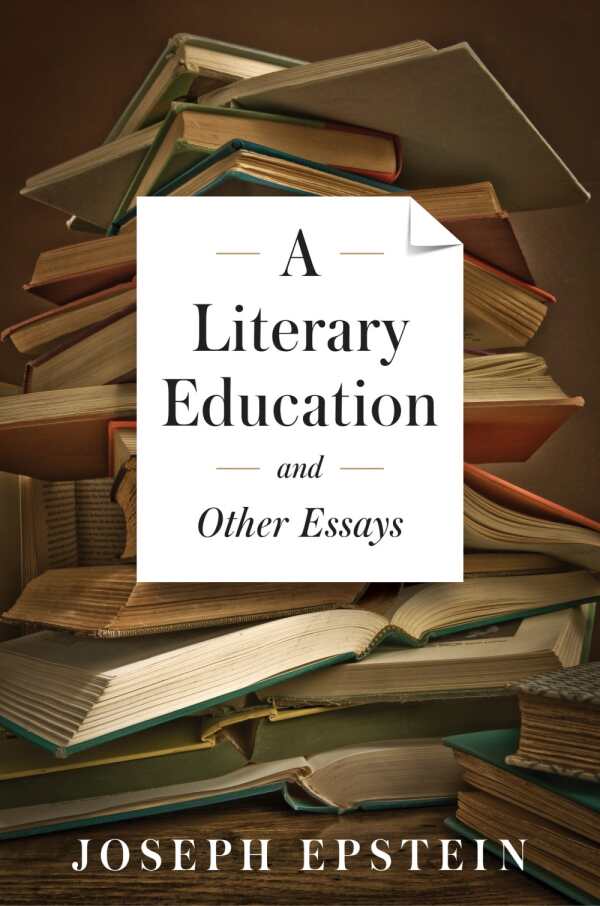A Literary Education
And Other Essays
Epstein’s erudite and tough yet fair criticism delivers analytical wisdom.
Joseph Epstein’s essay “A Literary Education: On Being Well-Versed in Literature” drew more than the typical share of attention when it was first published in New Criterion in 2008. Epstein has become a master of the form during more than five decades of writing—many of his twenty-four published books are collections of his essays—and thus, even those essays not as widely read always have a high level of quality and sure-handedness.
A Literary Education groups its essays in chapters by topic: A Literary Education, Memoir, The Culture, The Arts, Education, Language, Magazines, and Intellectuals. There’s a small amount of repetition, since these essays weren’t originally written with a single collection in mind (they range in original publication dates as far back as 1969 and up to the present day).
Epstein is always erudite, penetrating, and decisive in his opinions. Readers may not always agree with him, and he does sometimes fall into a literate but complaining style—the subjects that motivate him to write are often delivered with an apparent goal of convincing the reader that the author’s view of things is the correct one. However, Epstein’s delivery is filled with thorough analysis, delightful allusions, and outright laughs. The tone of harsh but fair criticism makes Epstein’s positive judgments that much more convincing. Epstein, despite his obvious sophistication and wide range of learning, seems a humble man.
Epstein’s range of knowledge is formidable, and his references will have readers making notes of other subjects to explore or writers to put on their to-read lists. At times, it can be a bit much, as when Epstein discusses writer Paul Goodman: “Reading about Goodman’s homosexual escapades, or hearing anecdotes from people who knew him, one is reminded of no one quite so much as the minor character in Clancy Sigal’s last novel who was expelled from Summerhill for behavior offensive to A. S. Neill.”
Not many readers will fully grasp the references in such sentences, but those who do will delight in them, and those who don’t will find them only minor stumbling blocks. Epstein deserves to be read, and the essays in A Literary Education make a good addition to the collections of longtime readers and an excellent introduction for those who have never read Epstein before.
Reviewed by
Peter Dabbene
Disclosure: This article is not an endorsement, but a review. The publisher of this book provided free copies of the book to have their book reviewed by a professional reviewer. No fee was paid by the publisher for this review. Foreword Reviews only recommends books that we love. Foreword Magazine, Inc. is disclosing this in accordance with the Federal Trade Commission’s 16 CFR, Part 255.

